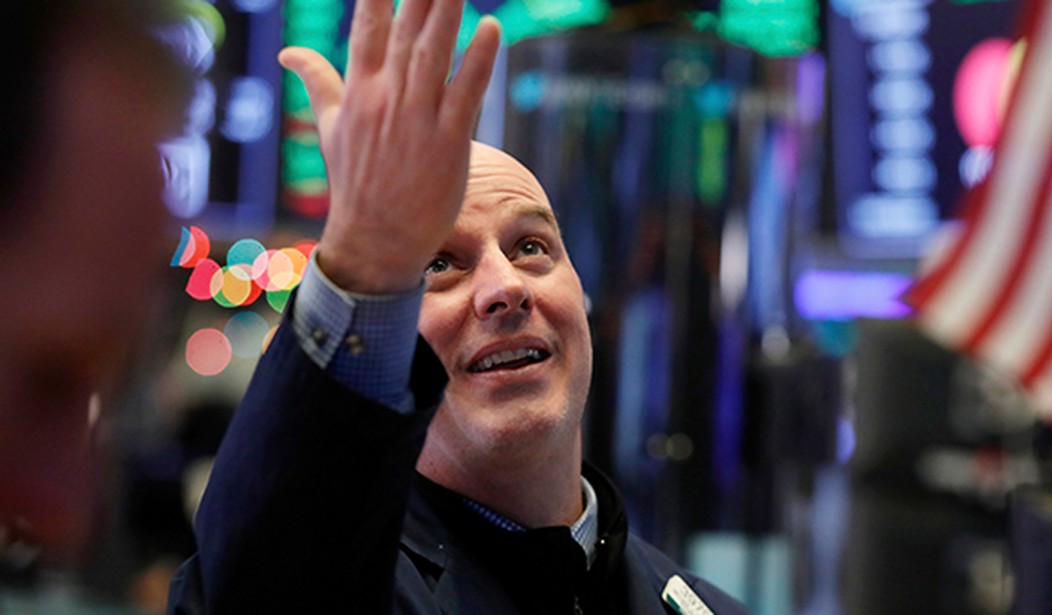The market limped into the weekend, but it’s been a spectacular year so far. Sure, we are only a couple weeks into 2019, but the bounce back has been one for the record books with the quickest $1.0 trillion bounce in the history of the Wilshire 5000.
The Energy sector has led the way, riding an impressive rebound in crude oil. Communication Services and Consumer Discretionary have come on strong, and Industrials have been beneficiaries of value-seeking investors and improved hopes on a U.S.- China trade deal. However, this week, it’s all about Financials and those big money center banks.
S&P 500 Index 2019 | +3.57% |
Communication Services (XLC) | +6.71% |
Consumer Discretionary (XLY) | +5.63% |
Consumer Staples (XLP) | +1.67% |
Energy (XLE) | +8.13% |
Financials (XLF) | +2.85% |
Health Care (XLV) | +1.50% |
Industrials (XLI) | +5.37% |
Materials (XLB) | +3.46% |
Real Estate (XLRE) | +3.13% |
Technology (XLK) | +2.52% |
Utilities (XLU) | +0.59% |
Citigroup (C) kicks off earnings season this morning with all the weight of the world on its shoulders. Interestingly, investors are betting big on Citigroup to post a great number and offer guidance above consensus.
Speaking of consensus, the Street has come down a lot in the past couple weeks:
- Current estimate: $1.55
- One Week ago: $1.61
- Two weeks ago: $1.64
And yet, even as earnings estimates have been dropping like a rock, the stock has been rocketing higher +8.9% year-to-date. It should be noted the stock is still down 25% over the past 52 weeks.
Speaking of banks, there’s speculation the Federal Reserve will ditch its ‘adverse conditions’ measure in future stress tests and focus solely on ‘severely adverse conditions.’
Recommended
Severely Adverse Conditions (Federal Reserve)
Each scenario includes 28 variables, such as the Gross Domestic Product (GDP), unemployment rate, stock market prices, and interest rates (encompassing domestic and international economic activity). Along with these variables, the Board is publishing a narrative that describes the general economic conditions in the scenarios and changes in the scenarios from the previous year.
In the most recent stress test, the Fed looked at an economic collapse over seven quarters, resulting in the following conditions:
- GDP: 7.5% from pre-recession peak
- Unemployment: 10%
- Equities: 65%
- Real Estate:
- Housing: 30%
- Commercial: 40%
- Volatility Index (VIX): +60%
The Fed calculated losses over nine quarters:
Projected Losses
The Federal Reserve projects that the 35 firms as a group would experience significant losses on loans and other positions under the severely adverse scenario. In this scenario, losses are projected to be $578.36 billion for the 35 firms in the aggregate over the nine quarters of the planning horizon. These losses include:
- $429 billion in accrual loan portfolio losses
- $10 billion in other than temporary impairment (OTTI) and other realized securities losses
- $113 billion in trading and/or counterparty losses at the 14 firms with substantial trading
- $26 billion in additional losses from items such as loans booked under the fair-value option
My Thoughts
I honestly think the Fed is misjudging the impact from a severely adverse economic scenario. It just doesn’t seem to measure the kind of panic that would come with people’s homes and stock portfolios being wiped out. Let’s just hope we don’t need to see real-life reaction anytime soon (like in our lifetime).
Portfolio Approach
Not sitting on much cash and we have some good profits, I’d like to hold but it looks enticing.
Communication Services | Consumer Discretionary | Consumer Staples |
2 | 4 | 1 |
Energy | Financials | Healthcare |
1 | 1 | 1 |
Industrial | Materials | Real Estate |
3 | 4 | 0 |
Technology | Utilities | Cash |
1 | 0 | 2 |
Today’s Session
The market is starting the week off under huge pressure after China posted trade data that missed Consensus by a larger margin.
· Exports -4.4%
· Imports -7.6%
The knee jerk reaction might focus on tariffs, but the more worrisome issue is China’s slowing economy. The 7.6% decline in imports echoed weakness from consumers seen in several other economic data releases.
The United States receives 19% of China’s exports, so there is no doubt tariffs have made an impact. Perhaps this news hastens a deal rather than defense posturing. China exports have suffered from weaker global economies, including Japan, which is 6.1% and Germany 3.1%.
Bank Earnings
While too-big-to-fail banks only grew, a larger share of the sector share prices reflect the extent of the crisis and the challenges ahead. This morning results from Citigroup were mixed, with revenues slightly less than expected, but a big beat on earnings; $1.61 versus $1.55. The street seems most concerned with the sharp miss in its fixed asset business.
The mortgage origination business was down sharply, but 90 day delinquencies were only $180 million versus $199 million year ago.
Citigroup shares are down 88% from May 2007 high. Even a look at the last five years underscores the struggle to reclaim lost glory.
Five Year Change
- Citigroup +14.9%
- Bank of America +58.2%
- JP Morgan +81.4%
- Goldman Sachs +5.5%

























Join the conversation as a VIP Member